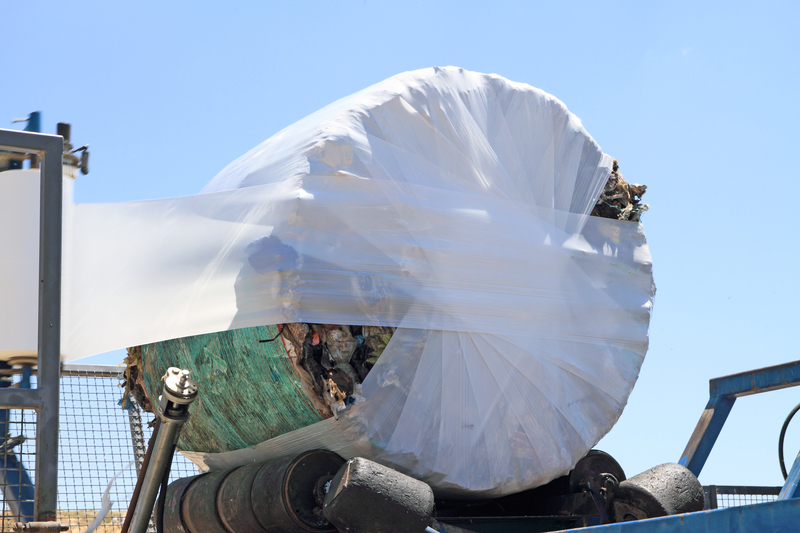Eco-Friendly Methods to Reduce Plastic Dependency
In the modern era, plastic dependency has emerged as a pressing environmental issue with far-reaching consequences. This versatile material, once celebrated for its convenience and durability, now pollutes our oceans, fills our landfills, and endangers wildlife and human health. As awareness grows, an increasing number of people are seeking eco-friendly methods to minimize plastic use and transition towards more sustainable living. This article will provide in-depth insights and practical approaches to reduce plastic dependency in households, businesses, communities, and at policy levels.
Why Is Reducing Plastic Usage Essential?
Plastic pollution is one of the most challenging environmental crises of our time. The reasons for prioritizing the reduction of plastic dependency include:
- Environmental Impact: Plastics take hundreds to thousands of years to decompose, crowding landfills and harming marine life.
- Health Risks: Microplastics have entered the food chain, posing risks to animal and human health.
- Resource Depletion: Plastic production relies on non-renewable fossil fuels like petroleum and natural gas.
- Economic Burden: Cleanup costs and environmental remediation are expensive for governments and taxpayers.
It is clear that reducing reliance on plastics is key to ensuring a healthier, more sustainable future.

Understanding the Scope of Plastic Dependency
Before addressing the solutions, it is important to recognize the extent and types of plastic usage in society. Common single-use plastic items include:
- Plastic bags
- Water bottles and beverage containers
- Straws and cutlery
- Food packaging
- Shampoo bottles and toiletry containers
- Product packaging for electronics, toys, and more
This widespread usage of plastic is what makes lasting change so challenging, but also necessary.
Eco-Friendly Methods to Reduce Plastic Dependency at Home
1. Embrace Reusable Alternatives
The easiest and most effective way to begin reducing plastic usage is to shift to reusable products in daily life:
- Cloth Bags: Replace single-use plastic bags with cloth or jute bags for shopping.
- Reusable Bottles: Carry stainless steel, glass, or BPA-free reusable bottles.
- Food Containers: Store food in glass, bamboo, or stainless containers instead of plastic ones.
- Beeswax Wraps: Substitute cling films and plastic wraps with beeswax wraps or silicone lids.
- Bulk Shopping: Buy pantry essentials in bulk to minimize packaging waste.
2. Choose Plastic-Free Personal Care
Many personal care products come wrapped in plastic. Eco-friendly swaps include:
- Bar Soaps and Shampoos: Use solid soap and shampoo bars instead of bottled liquids.
- Bamboo Toothbrushes: Replace plastic toothbrushes with bamboo alternatives.
- Refillable Containers: Refill products like lotion, detergent, and cleaning liquids at zero-waste stores.
- Natural Fibers: Opt for cotton pads, loofahs, and other natural bath products.
3. Smart Shopping and Packaging Choices
Product packaging is a major source of plastic waste. Consumers can make smarter choices by:
- Favoring Minimal Packaging: Choose brands and products with little to no plastic packaging.
- Supporting Local Markets: Shop at farmers' markets where produce is less likely to be wrapped in plastic.
- Avoiding Single-Use Items: Steer clear of straws, disposable cutlery, and other single-use plastics.
4. Compost and Recycle Diligently
Practicing proper waste management reduces plastic that ends up in landfills and the environment:
- Composting: Compost food scraps and biodegradable materials to avoid using plastic trash bags.
- Recycling: Follow local recycling rules to recycle only appropriate plastics and avoid contamination.
- Participating in Recycling Programs: Join community recycling programs or drop-off points for difficult-to-recycle items.
Eco-Friendly Business Practices to Minimize Plastic Use
Businesses hold significant sway in shaping consumer habits and production trends. Companies dedicated to reducing their plastic footprint can make a remarkable difference. Here are some key approaches:
1. Eco-Conscious Packaging
- Biodegradable Materials: Use packaging derived from plant-based sources like cornstarch, bagasse, or paper.
- Recyclable Packaging: Switch to easily recyclable cardboard, glass, or metal containers.
- Reusable Packaging: Embrace "return and refill" systems for products such as beverages, detergents, and cosmetics.
2. Product Redesign and Innovation
- Minimalist Design: Remove unnecessary plastic elements from product design and packaging.
- Modularity: Develop products with replaceable, repairable components to prolong lifespan and reduce waste.
- Alternative Materials: Explore sustainable alternatives such as bamboo, bioplastics, or mushroom-based packaging.
3. Influencing Consumer Behavior
- Incentivize Reusables: Offer discounts or loyalty points to customers using reusable bags, cups, or containers.
- Eco-Friendly Branding: Highlight your company's commitment to reducing plastic dependency in marketing and communications.
- Transparent Reporting: Publicly share progress on plastic reduction targets to foster trust and accountability.
Community Actions to Cut Down Plastic Consumption
Building sustainable communities is one of the most impactful ways of combating the plastic problem on a larger scale. Community engagement leads to greater participation and stronger results. Effective community-led initiatives include:
- Beach and Park Cleanups: Regular cleanups reduce existing plastic waste and raise public awareness.
- Plastic-Free Events: Organize festivals, markets, and public gatherings with strict no-plastic policies.
- Education Campaigns: Implement workshops in schools and neighborhoods to teach about sustainable alternatives and plastic dangers.
- Community Swaps and Loan Libraries: Create sharing economies for tools, toys, and household goods to reduce unnecessary purchases and packaging.
- Local Legislation: Advocate for plastic bans or taxes at municipal levels to significantly discourage usage.
Government Policies and Global Efforts to Reduce Plastic Dependency
Legislation and regulation play a pivotal role in driving systemic change. Many countries and cities are enacting bold policies to curb plastic usage. Strategies include:
- Bans and Levies: Implement country- and state-wide bans on single-use plastics or impose fees to discourage their use.
- Extended Producer Responsibility: Mandate that manufacturers take responsibility for the complete lifecycle of their plastic products, including collection and recycling.
- Subsidies and Incentives: Provide grants and tax breaks for businesses that invest in sustainable alternatives and recycling infrastructure.
- Research and Innovation: Fund research into biodegradable and compostable material development.
- International Cooperation: Join global initiatives, like the United Nations Environment Programme's Clean Seas campaign, to address plastic pollution collectively.
Innovative Alternatives to Traditional Plastics
As global awareness grows, so does innovation in sustainable alternatives to conventional plastics. Some promising materials and approaches include:
- Bioplastics: Made from renewable sources like corn starch and sugarcane, these break down more safely in the environment.
- Edible Packaging: Films created from seaweed, rice, or potato starch which can be eaten or composted.
- Mushroom Packaging: Utilizes agricultural waste and mycelium to form compostable product packaging.
- Bamboo and Palm Leaves: Used for utensils, plates, and even certain textiles as plastic alternatives.
- Silicone: Though technically a polymer, food-grade silicone can be reused for years and doesn't leach chemicals.
Practical Tips for Individuals: Building Sustainable Habits
- Carry a Kit: Bring along reusable bags, utensils, and containers whenever you leave home.
- Refuse Unnecessary Plastic: Politely decline plastic straws, bags, or cutlery when offered.
- Buy in Bulk: Reduce packaging waste by purchasing larger quantities or shopping from bulk bins.
- DIY Solutions: Make homemade cleaning and personal care products to cut down on plastic-packaged goods.
- Support Zero-Waste Stores: Choose retailers committed to zero or low-plastic product offerings.
- Educate Others: Share your journey and knowledge about reducing plastic dependency within your circles.
Challenges in Overcoming Plastic Addiction
Despite widespread recognition of the problem, certain obstacles hinder the transition away from plastics:
- Convenience and Habit: Plastic products are deeply ingrained in everyday routines for their affordability and ease.
- Limited Access to Alternatives: In many regions, sustainable options remain expensive or hard to find.
- Lack of Infrastructure: Recycling facilities and compost systems aren't universal or effective everywhere.
- Greenwashing: Some products falsely market themselves as eco-friendly, confusing and misleading consumers.
Overcoming these challenges requires collective action, continued education, and pressure on industry and legislators.

The Future of Reducing Plastic Dependency
Transitioning to a plastic-free or low-plastic lifestyle poses its difficulties, but the movement is gaining momentum worldwide. With greater public awareness, governmental action, and technological advances, the days of plastic dominance could soon be a chapter in history.
Here's what the future holds if eco-friendly methods to reduce plastic dependency are embraced:
- Cleaner oceans and ecosystems free from the dangers of plastic waste.
- Reduced carbon footprint from decreased plastic production and disposal.
- Healthier communities with less exposure to microplastics and toxins.
- Innovation-driven economies capitalizing on sustainable material development.
As consumers, business leaders, and policymakers, we possess the power to make significant changes through informed choices and persistent advocacy.
Conclusion: Every Step Matters
Reducing plastic dependency is a shared responsibility across all sectors of society. While the scope of the challenge is vast, every eco-conscious decision--no matter how small--contributes to meaningful progress towards a sustainable, healthier planet.
If you are just beginning your journey, remember that changing even one habit can have a ripple effect in your home, workplace, and community. Together, we can transition towards a world where plastics no longer threaten our future. Your choices matter--start today!